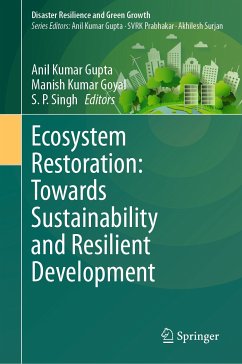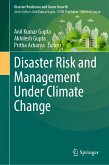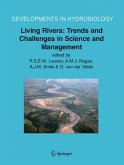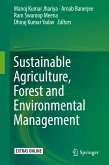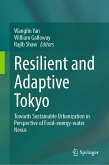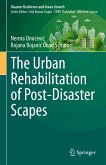This edited book offers coverage towards SDG 15 in particular, but it provides for all the SDGs in general. The book is an inclusive comprehension on ecosystem restoration and sustainability including agricultural and ecosystem resilience, the role of biodiversity, climate change and water resources, hydrological modelling, extreme events, disaster risk and management, sustainable policy making on disaster management. The world is facing diverse and severe challenges. Millions of people are suffering from the catastrophic effects of extreme disasters, climate emergencies, water and food insecurity, and the repercussions of COVID-19 pandemic. Ecosystems are essential players in people's capacity to meet these challenges. Hence, managing them and protecting their resources in sustainable ways is crucial. The book 'Ecosystem Restoration: Towards Sustainable and Resilient Development' provides comprehensive information on fundamentals, approaches and latest developmentsin the field of ecosystem restoration, resilience and sustainability. This book is of interest to teachers, researchers, climate change scientists, and valuable source of reference to the professionals and students in the relevant disciplines. Besides, the book serves as additional reading for graduate students of water, ecology, restoration forestry, soil science, and environmental sciences. National and international ecological policy makers, scientists and planners will also find this to be a useful read.
Dieser Download kann aus rechtlichen Gründen nur mit Rechnungsadresse in A, B, BG, CY, CZ, D, DK, EW, E, FIN, F, GR, HR, H, IRL, I, LT, L, LR, M, NL, PL, P, R, S, SLO, SK ausgeliefert werden.

